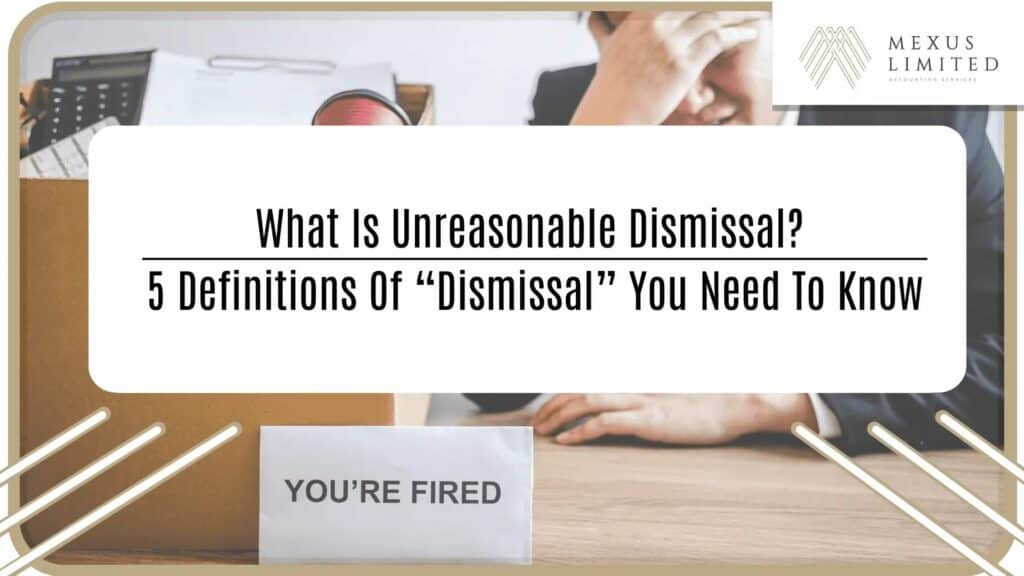What is unreasonable dismissal? 5 Definitions of “Dismissal” You Need to Know

When there is a problem in the employment relationship and the contract needs to be terminated, many people will have a lot of arguments about “reasonable dismissal” and “unreasonable dismissal”. To protect the rights and interests of both parties, but also do not want to go to court because of dismissal, then you must understand Hong Kong’s labor law – the “Employment Ordinance”, how to view the definition of “dismissal”?
Reasonable dismissal? Unreasonable dismissal?
Under Section 32K of the Employment Ordinance, when an employer intends to dismiss an employee or change the employment contract, it is considered a “reasonable dismissal” if it can be proved that the reason is based on the following grounds.
Conversely, as long as the employee has been continuously employed for not less than 24 months and is not dismissed for the following valid reasons, it may constitute “unreasonable dismissal”:
• the conduct of employees;
• the competencies or qualifications required by the employee for the job;
• layoffs or other genuine business needs;
• statutory requirements;
• Other substantial reasons.
Of course, there are many gray areas in this. For example, “employee behavior” and “other substantive reasons” are difficult to define objectively, so it is still necessary to refer to past cases.
Unlawful dismissal?
Conversely, if an employee is dismissed by the employer during the following periods, the employer is likely to be prosecuted for “wrongful dismissal”, and upon conviction may be fined $100,000, and the employee may file a compensation claim against the employer:
• dismissal while the employee is pregnant or on maternity leave;
• Dismissal during paid sick leave, work-related injury;
• Dismissal while providing evidence or information in labor law procedures;
• Fired while participating in union activities.
Instantly fire an employee?
However, if the employee commits the following serious misconduct, the employer will be able to dismiss the employee with immediate effect without prior notice and without payment in lieu of notice:
• Willful disobedience to a lawful and reasonable order of the employer;
• misconduct;
• committing fraud or dishonesty;
• Routine neglect of duty.
It should be noted, however, that as a disciplinary action, summary dismissal is applicable regardless of multiple warnings, if it is very serious negligence.
Employee terminates the employment contract immediately.
There is also a situation where the employee terminates the employment contract immediately without notice or payment in lieu of notice. If the employee meets the following conditions:
• Have a reasonable fear of being endangered by violence or disease;
• being mistreated by employers;
• Continuous employment for not less than 5 years, and a designated certificate issued by a registered medical practitioner/Chinese medicine practitioner to prove that he is permanently unfit for the current job due to health reasons.
The above information is for reference only. If you have any questions about employment regulations, labor laws, or accounting, we welcome your inquiries.




